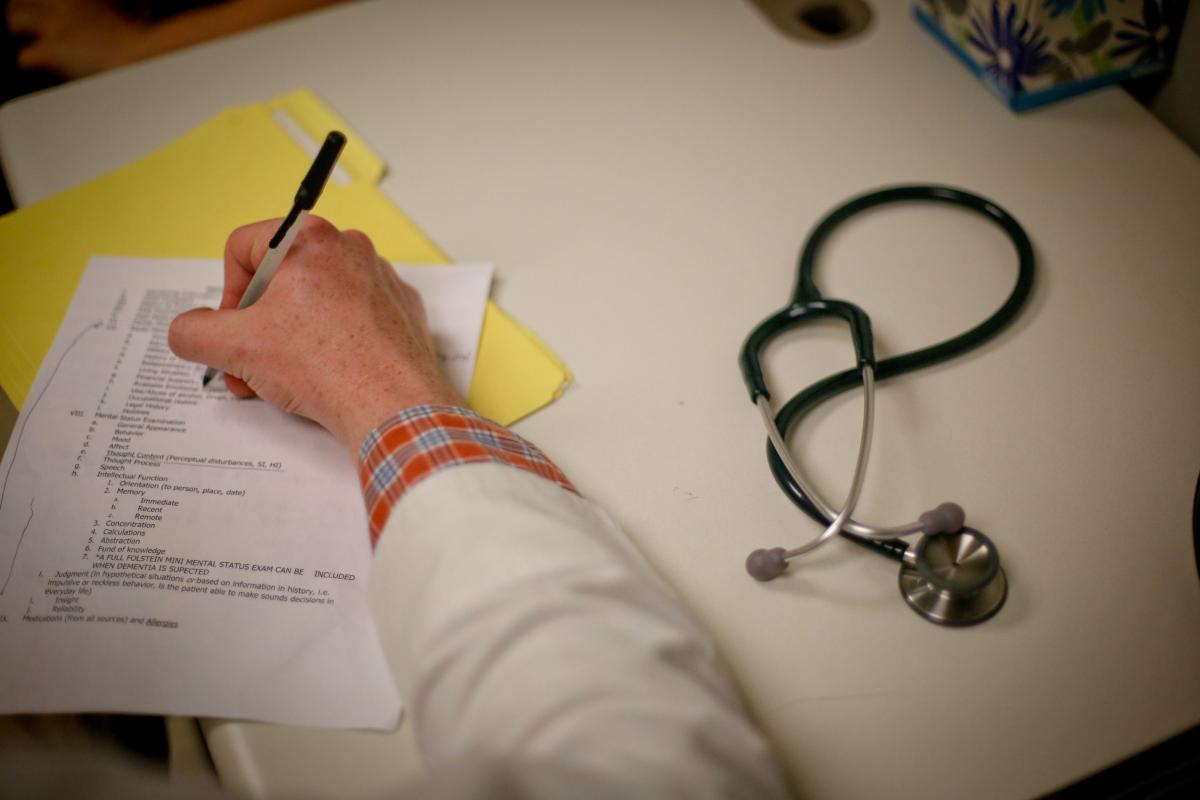
Who can be a Standardized Patient (SP)?
Men and women of all ages and ethnic groups have the opportunity to apply for a SP position. We look for people with excellent communication skills, a good memory, and relatively flexible schedules. We value reliability and punctuality. You should be comfortable with your own health and in dealing with health professionals. The best SPs have a genuine interest in helping student learn.
This job is not easy, and it is not for everybody. It requires intense concentration while you are being interviewed and examined. You must be able to maintain the patient's character and physical condition during a 15-30 minute long encounter. After the encounter you must be able to remember what the student did and didn't do and record this information on a checklist. You have to be able to do this many times in succession and maintain a high level of consistency and accuracy. Being an SP is hard work.
Will I need to know a lot about medicine?
No. We will teach you what you need to know. We actually prefer people who have not had medical training, because it can confuse the situation. Most SPs find they learn a lot from the work.
How are SPs trained to work with students?
The SP Program provides all training and materials to needed to deliver accurate instruction according to the faculty developed curriculum. Some individuals may have additional monitoring sessions to ensure knowledge and comfort level before working with students.
Training sessions include didactic sessions, video review, small group interactions, and event dry runs. SP trainees are required to monitor events prior to student interactions.
What types of physical examinations would be done?
They would be very common examinations of the type you would have in a doctor's office. For example, medical students may listen to heart and lungs with a stethoscope; press on your abdomen to look for tenderness or swelling; take your blood pressure; look into eyes, ears, nose and throat; assess your muscle strength; check your pulses; etc. Students will not practice giving you injections or collecting blood or other fluid samples from you. The students will not do breast, pelvic, or rectal exams on you. We do have specially trained standardized patient teaching associates who teach those exams.
As an SP, will I need to remove clothing?
SPs generally wear hospital gowns and shorts during student encounters. This is to allow the SP to demonstrate physical exam techniques using their own body. This also and most importantly allows the student to practice physical exam techniques on a human being.
Is my previous health history important?
Not necessarily. Medical students first need to be taught what "normal" sounds, feels, and looks like before they are able to identify anything abnormal. The information that is given to a student in an SP encounter is never actual patient information. The patient case is created by faculty specifically for educational purposes. SP case roles are based upon academic curriculum needs and student level.
The work will be irregular. We teach physical exam techniques in the fall and give four large, multi-week exams in the spring. In addition, we do smaller projects using SPs throughout the year. The SP Center directly supports the faculty in meeting curriculum requirements. How often you work will depend on the types of patients we need to portray.
Basic exam interactions like history taking and general exam procedures pay $20.00 an hour. As this is a part time job, we do not offer benefits. Compensation differs per hour for individual who choose to be apart of our intimate exam program. Individuals interested in the intimate exam program can inquire once they are hired as an SP1.
E-mail us with your contact information at spprog@tulane.edu. If you wish, attach a cover letter and/or resume. We will contact you once our job posting is on the Tulane Jobs website with directions on how to apply for the position. We typically recruit only once a year prior to the beginning of the fall semester. Feel free to contact us with any questions about the program or the recruiting process.
If you have more questions, please contact I.Curran (icurran@tulane.edu).
